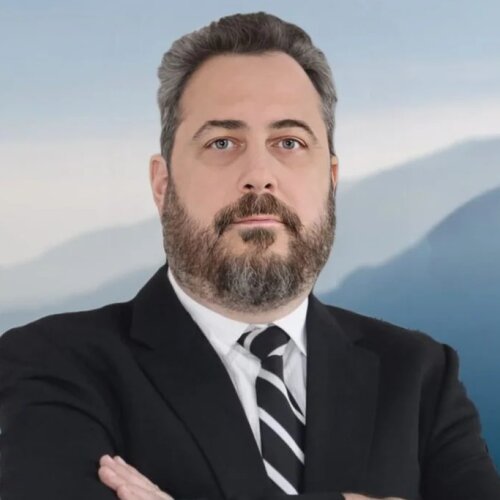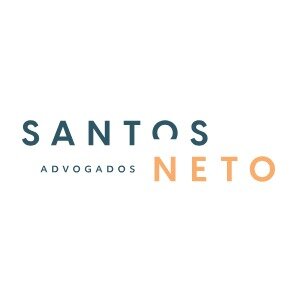Best Structured Finance Lawyers in São Paulo
Share your needs with us, get contacted by law firms.
Free. Takes 2 min.
List of the best lawyers in São Paulo, Brazil
About Structured Finance Law in São Paulo, Brazil
Structured finance is a specialized area of financial law dealing with complex financial instruments designed to meet specific risk and funding needs. In São Paulo, which serves as Brazil's main financial and business hub, structured finance has become essential for companies, banks, and institutional investors looking to optimize their capital structures, raise funds, and manage risks. Typical structured finance transactions in São Paulo include securitizations, asset-backed securities, project finance, receivables financing, and syndicated loans. The city is home to the largest stock exchange in Latin America, B3, and hosts several multinational banks and law firms with tailored expertise in the field.
Why You May Need a Lawyer
Engaging in structured finance transactions in São Paulo often involves significant legal and regulatory complexities. There are several scenarios where you may need legal advice:
- Structuring and negotiating securitization deals for receivables or other underlying assets
- Raising capital through the issuance of debentures or other structured debt instruments
- Participating in project finance initiatives for infrastructure, energy, or real estate developments
- Complying with local and national regulations set by the Brazilian Securities and Exchange Commission (CVM) and the Central Bank of Brazil
- Navigating cross-border structured finance deals involving international counterparties
- Assessing tax implications and ensuring the proper legal treatment of complex transactions
- Addressing disputes or defaults related to structured finance instruments
A lawyer experienced in structured finance can help you evaluate risks, draft and review documentation, and ensure your transactions comply with all legal requirements in São Paulo.
Local Laws Overview
Structured finance in São Paulo, like the rest of Brazil, is governed by a combination of federal laws, financial regulations, and specific instruments issued by regulatory authorities. Key aspects include:
- Receivables Securitization: Governed mainly by Federal Law 9.514 of 1997 and Law 10.931 of 2004, which regulate securitization companies such as FIDCs (Receivables Investment Funds) and CRIs/CRAs (Real Estate and Agribusiness Receivables Certificates).
- Public Offerings: The Brazilian Securities and Exchange Commission (CVM) oversees public offerings of securities, including structured finance instruments, under Law 6.385 of 1976 and CVM instructions.
- Banking and Credit Operations: Supervised by the Central Bank of Brazil, particularly relevant if banks or financial entities are parties to the transaction.
- Tax Implications: Structured transactions often have unique tax treatment, and São Paulo has its own municipal taxes which may impact the transaction.
- Contract Enforcement and Dispute Resolution: The Brazilian Civil Code provides the legal framework for contracts, while arbitration is often used for dispute resolution in large structured finance deals.
- Cross-Border Elements: Foreign investment and currency controls apply, and legal advice is crucial for transactions involving international entities.
Due to the complexity and the multi-level regulation, structured finance transactions in São Paulo require thorough legal oversight and due diligence.
Frequently Asked Questions
What is structured finance and how is it used in São Paulo?
Structured finance refers to sophisticated financial arrangements such as securitizations, syndicated loans, and project finance, which are common in São Paulo's dynamic corporate and banking sectors. These are used to raise capital, manage risks, and finance large projects.
What are the main structured finance instruments in Brazil?
Popular instruments include Credit Receivables Investment Funds (FIDCs), Real Estate Receivables Certificates (CRIs), Agribusiness Receivables Certificates (CRAs), and debentures issued by public or private companies.
Who regulates structured finance activities in São Paulo?
The main regulators are the Brazilian Securities and Exchange Commission (CVM), the Central Bank of Brazil, and in some cases, the National Monetary Council (CMN).
Do foreign investors face extra restrictions in structured finance deals?
Yes. Foreign investment is allowed but subject to registration and controls under the Central Bank, and certain tax and reporting obligations must be met.
Is tax advice necessary for structured finance in São Paulo?
Yes. Transactions often have significant tax implications, including municipal, state, and federal taxes. A specialized lawyer or tax consultant can help structure the deal to optimize tax efficiency.
Are there special requirements for securitization deals?
Yes. Securitizations in Brazil must comply with specific laws and CVM instructions regarding the formation and operation of vehicles like FIDCs and the issuance of CRIs/CRAs.
How long does it take to complete a structured finance transaction?
Timelines vary based on complexity and regulatory approvals but can range from a few weeks for simple deals to several months for larger or cross-border transactions.
What are the common risks in structured finance?
Risks include credit risks of the underlying assets, legal and compliance risks, market and liquidity risks, and potential taxation issues.
How can disputes in structured finance deals be resolved?
Most large deals specify arbitration as the preferred method of dispute resolution, often handled in São Paulo or other major centers, alongside traditional court remedies.
How do I choose the right lawyer for structured finance in São Paulo?
Look for firms or attorneys with recognized expertise in banking law, capital markets, and structured finance. Experience with both local and international deals is a strong advantage.
Additional Resources
If you are seeking further information or require official guidance on structured finance in São Paulo, these resources may be helpful:
- Brazilian Securities and Exchange Commission (CVM): Supervises and regulates capital markets and structured transactions.
- Central Bank of Brazil (Banco Central do Brasil): Oversees banking operations and foreign investment rules.
- B3 - Brasil Bolsa Balcão: The main stock exchange and market infrastructure operator for structured instruments.
- São Paulo State Board of Trade (JUCESP): Registers legal entities involved in structured finance deals.
- Brazilian Bar Association - São Paulo Chapter (OAB/SP): List of specialized lawyers and law firms in São Paulo.
- Professional associations and research centers at top universities in São Paulo, such as FGV and USP, often provide publications and seminars on structured finance.
Next Steps
If you require legal assistance in structured finance in São Paulo, consider the following actions:
- Define your objectives and gather all relevant documents regarding your planned transaction or issue.
- Identify and contact a law firm or lawyer with expertise in structured finance, banking law, and capital markets in São Paulo.
- Request an initial consultation to outline your case and evaluate possible strategies and costs.
- Discuss potential regulatory and tax issues early on to avoid costly delays and ensure compliance.
- Stay informed about ongoing regulatory changes that may affect your transaction or investment.
Taking these steps will help you navigate the complexities of structured finance successfully and protect your legal and financial interests in São Paulo, Brazil.
Lawzana helps you find the best lawyers and law firms in São Paulo through a curated and pre-screened list of qualified legal professionals. Our platform offers rankings and detailed profiles of attorneys and law firms, allowing you to compare based on practice areas, including Structured Finance, experience, and client feedback.
Each profile includes a description of the firm's areas of practice, client reviews, team members and partners, year of establishment, spoken languages, office locations, contact information, social media presence, and any published articles or resources. Most firms on our platform speak English and are experienced in both local and international legal matters.
Get a quote from top-rated law firms in São Paulo, Brazil — quickly, securely, and without unnecessary hassle.
Disclaimer:
The information provided on this page is for general informational purposes only and does not constitute legal advice. While we strive to ensure the accuracy and relevance of the content, legal information may change over time, and interpretations of the law can vary. You should always consult with a qualified legal professional for advice specific to your situation.
We disclaim all liability for actions taken or not taken based on the content of this page. If you believe any information is incorrect or outdated, please contact us, and we will review and update it where appropriate.

















